Columbia University
BioResearch Product Faire™
Posted by BCI Staff on Mon, Sep 21, 2020
Tags: Columbia University, Columbia, 2020
Posted by Rebecca Partridge on Fri, Aug 25, 2017
On June 6th Columbia University celebrated the opening of the new state-of-the-art building that is to be the home of their School of Nursing. The seven-story, 68,000 square foot facility is designed to give students an ultramodern learning experience that will prepare them for work as clinicians, researchers, and educators. This building was funded in part by the University's $25M capitol campaign.
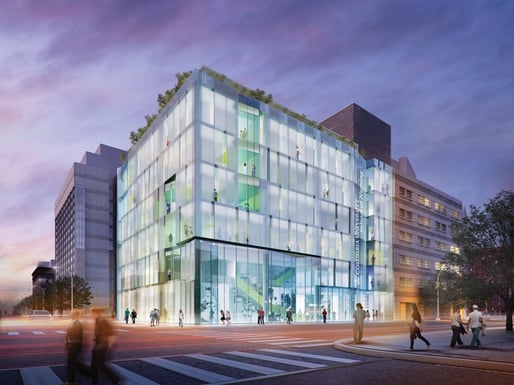
(Image courtesy of Columbia University Media)
Read MoreTags: New York, Columbia University, Columbia, New York City, Columbia University Medical Center, laboratory equipment suppliers, new medical buildings, Biotechnology trade show
Posted by Rebecca Partridge on Wed, May 24, 2017
Columbia University Medical Center’s new, state-of-the-art medical and graduate education building was completed in time to open for the fall term. Construction of the Roy and Diana Vagelos Education Center began in September of 2013. The building was designed to reshape the look and feel of the Medical Center campus and to create spaces that facilitate the development of skills essential for modern medical practice. This 100,000-square-foot, glass, concrete and steel center’s most distinguishing feather is a network of social and study spaces distributed along an exposed, interconnected vertical staircase, known as the “Study Cascade” which extends the height of the 14 story building.
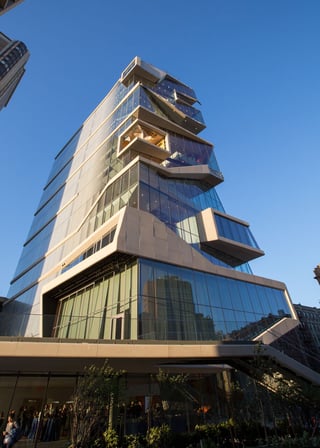
(Image courtesy of Jenny Gorman via Columbia University Media)
Read MoreTags: New York, Columbia University, Columbia, New York City, Columbia University Medical Center, Biotechnology trade show
Posted by Rebecca Partridge on Fri, Sep 02, 2016
Researchers at the Columbia University Medical Center (CUMC) may have found a way to reduce brain damage caused by a stroke or stroke-like event. In a study funded by the National Heart, Lung, and Blood Institute and the National Institute of Neurological Disorders and Stroke, 10-day-old mice that had an hypoxic (lack of oxygen) or ischemic (lack of blood) brain injury were treated with a fat emulsion containing either DHA or EPA—omega-3 fatty acids. The researchers evaluated the mice’s neurological function 24 hours and 8 to 9 weeks after the brain injury. They discovered that the mice treated with the DHA omega-3 fatty acids had a significant reduction in brain injury. This did not hold true for those treated with EPA-omega 3. The DHA group also had significantly better results in multiple brain functions during the 8 and 9 weeks evaluation compared to the EPA-treated mice and the control group which went untreated.
Read MoreTags: BioResearch Trade Show, New York, Columbia University, Columbia, NY, New York City, Columbia University Medical Center, biomedical researh, stroke, stroke research, DHA omega-3 fatty acids
Posted by Laura Braden on Mon, Aug 01, 2016
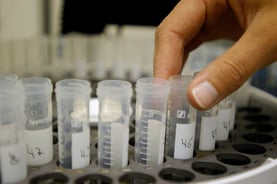 Since it's founding in 2006, the Herbert and Florence Irving Institute for Clinical and Translational Research at the Columbia University Medical Center, in partnership with the New York-Presbyterian Hospital in New York, has provided more than 2,000 scientists with new opportunities of conducting clinical and translational research leading to quicker developments and deliveries of treatments. Recently, the National Center for Advancing Translational Sciences (NCATS) awarded the Irving Institute a grant of $58.4 million over the next five years to help the Institute further the translational research being conducted.
Since it's founding in 2006, the Herbert and Florence Irving Institute for Clinical and Translational Research at the Columbia University Medical Center, in partnership with the New York-Presbyterian Hospital in New York, has provided more than 2,000 scientists with new opportunities of conducting clinical and translational research leading to quicker developments and deliveries of treatments. Recently, the National Center for Advancing Translational Sciences (NCATS) awarded the Irving Institute a grant of $58.4 million over the next five years to help the Institute further the translational research being conducted.
Tags: Columbia University, Columbia, NY, NIH grant, new funding, 2016, BioResearch Product Faire, Irving Institute, Clinical and Translational Research
Posted by Rebecca Partridge on Wed, Jul 06, 2016
New York's Columbia University is nearing the completion of an ambitious building project more than three years in the making. Columbia University Medical Center (CUMC) will open its new state-of-the-art building this August. Work began on this 100,000 square-foot, fourteen-story glass tower in September of 2013 thanks in large part due to a financial gift from Dr. Roy Vagelos and his wife Diana. So it seems fitting that the building will be named the Vagelos Education Center.
(Image Courtesy of Wikimedia Commns & Beraldoleal)
Read More
Tags: Medical Center, Biotech Event, New York, Columbia University, East Coast, Columbia, Biotechnology Vendor Fair, NY, New York City, Columbia University Medical Center, new Building, NYColumbia University, 2016, Medical equipment
Posted by Laura Braden on Tue, May 31, 2016
 Neuroscience and genetics are two important topics life scientists are consistently studying. Researchers from UC Davis found a promising treatment for Huntington's Disease, while UC San Francisco was awarded $185 million to build a new neuroscience research institute. Recently on the East Coast, a team of researchers from the Columbia University Medical Center discovered a new neurodevelopmental syndrome as well as the genetic makeup of the mutations that cause the syndrome. (Image courtesy of Allen Ajifo via Wikimedia Commons)
Neuroscience and genetics are two important topics life scientists are consistently studying. Researchers from UC Davis found a promising treatment for Huntington's Disease, while UC San Francisco was awarded $185 million to build a new neuroscience research institute. Recently on the East Coast, a team of researchers from the Columbia University Medical Center discovered a new neurodevelopmental syndrome as well as the genetic makeup of the mutations that cause the syndrome. (Image courtesy of Allen Ajifo via Wikimedia Commons)
Tags: Northeast, Columbia University, Neuroscience, Columbia, Genetics, Neurology, NY, Columbia University Medical Center, 2016, BioResearch Product Faire, neurodevelopmental syndrome
Posted by Laura Braden on Tue, Mar 29, 2016
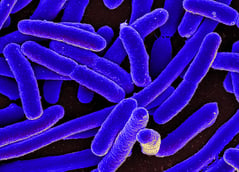 The human microbiome is a complex system of bacteria that live and interact in different tissues and organs throughout the body. This complex system is a growing area of focus for life science researchers looking to learn more about these interactions and functions. In order to help its researchers in this rapidly expanding field, Columbia University in New York has established both a working group and a new core facility to help increase research potential of the microbiome.
The human microbiome is a complex system of bacteria that live and interact in different tissues and organs throughout the body. This complex system is a growing area of focus for life science researchers looking to learn more about these interactions and functions. In order to help its researchers in this rapidly expanding field, Columbia University in New York has established both a working group and a new core facility to help increase research potential of the microbiome.
Tags: Northeast, microbiome, New York, Columbia University, Columbia, Research, NY, Columbia University Medical Center, 2016, BioResearch Product Faire, CUMC
Posted by Laura Braden on Tue, Jul 14, 2015
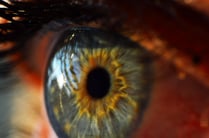 Achromatopsia - a genetic visual disorder that effects about 1 out of every 33,000 Americans - leads to severe vision problems, generally beginning at a young age. People with this disorder are extremely sensitive to light, have trouble seeing during the day (when it is bright out) and cannot see any color.
Achromatopsia - a genetic visual disorder that effects about 1 out of every 33,000 Americans - leads to severe vision problems, generally beginning at a young age. People with this disorder are extremely sensitive to light, have trouble seeing during the day (when it is bright out) and cannot see any color.
Tags: Northeast, New York, Columbia University, 2015, Columbia, NY, Color blindness, Achromatopsia, ATF6
Posted by Laura Braden on Tue, Jan 13, 2015
The Herbert Irving Comprehensive Cancer Center (HICCC) at Columbia University Medical Center and New York Presbyterian Hospital is a growing, highly funded research institution that focuses on researching all aspects of cancers. Since it's establishment in 1972, the HICCC has continuously performed world-renowned research and clinical trials.
Read MoreTags: Northeast, 2015, Columbia, BioResearch Product Faire Event, NY, Columbia University Medical Center